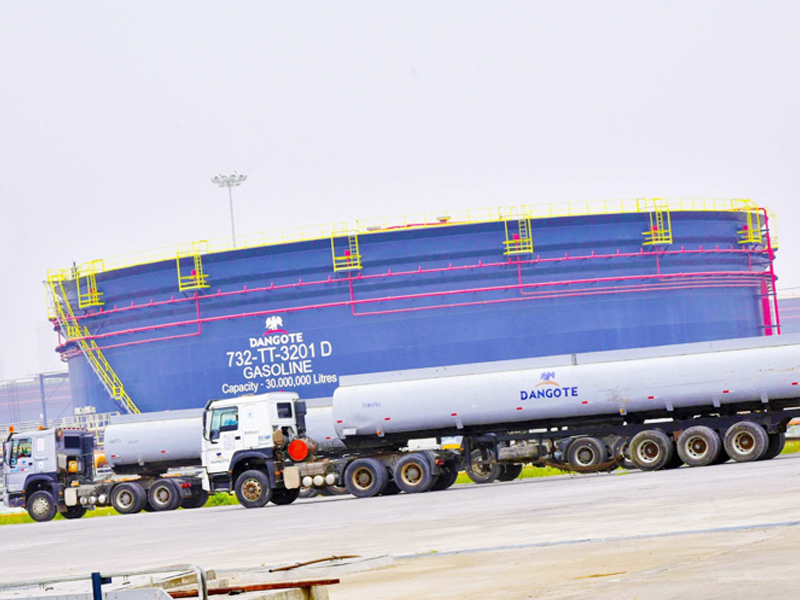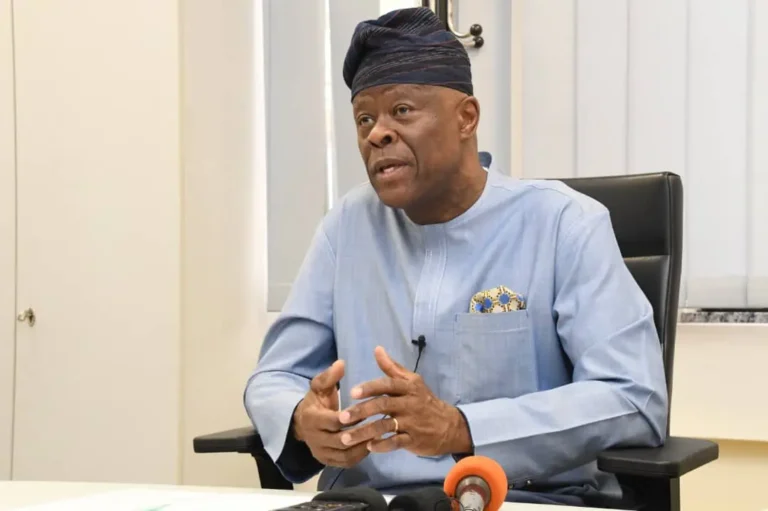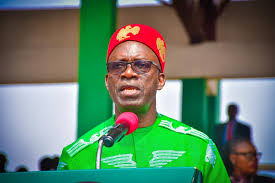
The Presidency says President Bola Tinubu will not intervene in the ongoing fuel price controversy between Dangote Refinery and the Nigerian National Petroleum Company Limited(NNPCL).
Special Adviser to the President on Information and Strategy, Mr. Bayo Onanuga, disclosed this on Wednesday while briefing State House correspondents at the presidential Villa, Abuja.
According to the presidential aide, both entities operate independently in a deregulated market.
He said under the Petroleum Industry Act(PIA), NNPCL functions autonomously despite government ownership.
“The PMS (Premium Motor Spirit) field, the PMS regime, has been deregulated. Dangote is a private company. NNPCL should not forget it’s a limited liability company.
“Whatever controversy both of them are having is their problem. They are operating, even if you go by the terms of Petroleum Industry Act NNPCL is on its own, even though it’s owned by the federal government, the state government and local councils and everything, but it’s operating as a limited liability company.
“You can see what the private market has said that I think they find the NNPC or Dangote price too much for them. They will resolve to import fuel because they clear the market at the end of the day.
“It’s the consumer who benefits if a price war starts, if NNPC fuel is too much, the public market can go to the market and bring in their fuel and sell at the price that they think is very reasonable and profitable for them.
“So my answer is that, as far as this is concerned, the government is not dabbling into this controversy. Dangote as a private company is working on his own. NNPC is a limited liability company, and it has the right to fix the price of it’s own and so on,” he disclosed.
Onanuga said instead of intervening, the government plans to promote alternative energy solutions like Compressed Natural Gas, CNG, offering a cheaper option for consumers and subsidizing conversion costs for vehicles.
He noted that the price difference is significant, with CNG costing about N230 per litre equivalent compared to PMS at around N850 per litre.
According to him, the government aims to have about a million vehicles running on CNG and plans to subsidize the conversion costs for private vehicle owners.
“Government wants to make sure that Nigerians have a choice. If you don’t want to use PMS, you can use CNG, and you can see what’s going on in some of our cities, Lagos, Ibadan, Benini and some other places where transporters are already embracing CNG.
“And the whole idea that CNG, the equivalent of gas to PMS, the gap is very wide. If you want to buy a litre of petrol, if they sell it, let’s say 850 Naira, what they’re going to get by the equivalent of CNG is about 230 Naira, and you can see the gap.
“Some of the transporters are already converting their vehicles to CNG, and the government has a plan to make sure that about a million of those vehicles run on CNG. The whole idea is that if they run on CNG, the cost of transportation will go down,” Onanuga stated.
In addition, Onanuga pointed out that the administration is encouraging states to develop urban transportation systems to reduce overall transportation costs.
He stated ” In addition, the government is going to encourage many of our states to go into urban transportation so they can help to make sure that they reduce the cost of transportation in many of our cities. As of now in the entire country, only Lagos, state has an urban transport system.
“Cities like Ibadan Kaduna, Kano, they don’t have it. But this government has a plan to encourage all of them to start urban transport.
“Any modern city should have an urban transport system. The government also has a plan to make sure that even private car owners can convert to CNG at a reduced cost.
“For transporters, it is almost free for them, but for private vehicle owners, the government has the plan to subsidize, I mean, the cost of converting the vehicle from petrol to CNG.”


